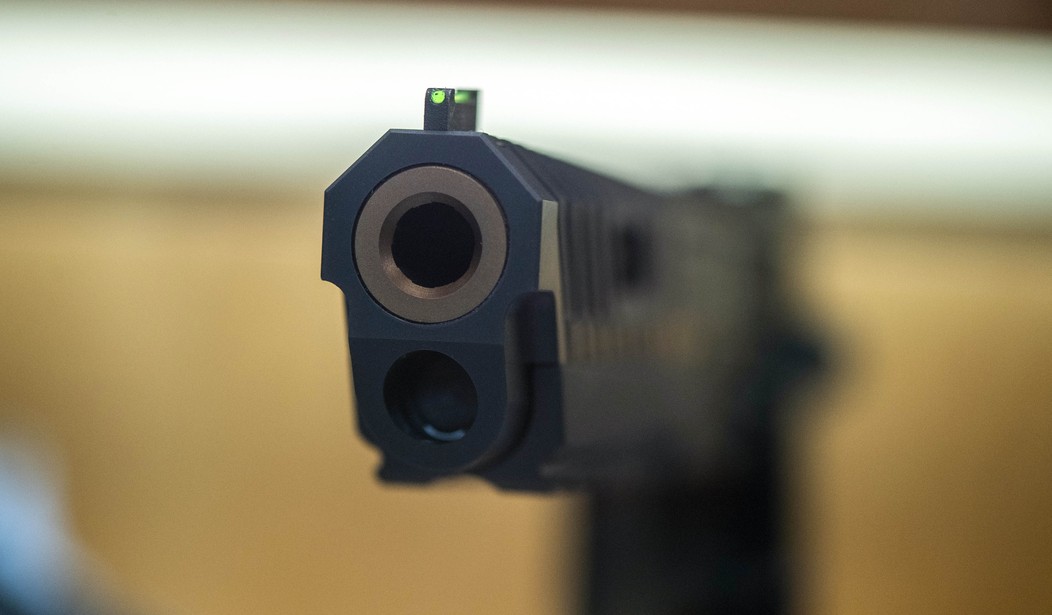When Shogun came out earlier this year, I watched the first couple of episodes. I never read the book or watched the earlier mini-series, so I was able to just view what was on the screen and judge it accordingly.
It was good. I need to finish the series because, well, it was good. Really good.
I've seen a lot of people discuss the movie, particularly among my bibliophile friends, but those discussions are rarely about politics. Thankfully.
But John Miltimore, writing at the Foundation from Economic Education got a political message from at least one tidbit of the show, and it was shockingly pro-Second Amendment.
Though Feudal Japan is not without its charms, we see that there is something not quite right about its political structure. Even those who have power, like samurai and daimyos, are at the mercy of those who have more of it. It’s Game of Thrones but in the Orient; and the powerful have little respect for the individual.
Blackthorne learns this early in the show. After wrecking the Erasmus off the coast of a small fishing village, he and his men are thrown into a pit. When he’s brought outside the pit, he begins to make demands to the samurai who rules the village, Omi. To demonstrate that Blackthorne has no power in Japan and no business making demands, Omi has Blackthorne held down. He then proceeds to urinate on the English navigator.
Things don’t end there, of course. Blackthorne is taken to Osaka where he meets the powerful Lord Toranaga, whom Blackthorne helps escape.
In Episode 4, Blackthorne returns to the fishing village, where he once again meets Omi. This time, however, Blackthorne is hatamoto, an honor he received from Toranaga. He’s also armed with a pair of mean-looking pistols he was able to retrieve from his ship.
Omi doesn’t like any of this. And in one of the best scenes of the show, the samurai tells Blackthorne’s Japanese interpreter that he must turn his pistols over.
MARIKO: “Omi-Sama insists it is forbidden to bring your weapons today.”
BLACKTHORNE: “Nonsense, your people bring swords wherever they go.”
MARIKO: “He says guns are different. You must turn them over.”
Blackthorne refuses, prompting Omi to take a step toward Blackthorne to confiscate the guns. Blackthorne cocks them and points them right at Omi’s head.
“For some reason, I just can’t shake the memory of our first meeting,” he tells Mariko.
The takeaway is clear. Now armed again with his pistols, and bestowed with samurai standing, Blackthorne has no intention of being powerless ever again.
There’s a lesson here. Firearms empower individuals. They offer protection against the tyrants (big and small) who would rule others.
Go and read the whole thing. John, as usual, writes with an intense understanding of the issue and the history of that issue.
This is an important lesson and one that I think most people inherently know on some level. Weapons, particularly firearms, are equalizers. A samurai with decades of training with his weapons will likely be the superior swordsman compared to a Westerner who had never seen a katana a few years prior. In fact, this is a common criticism of some movies and television shows--cases where the protagonist had never seen a sword before but suddenly becomes a master in a short period of time.
Guns, on the contrary, take a lot less time to learn and while shooting is a perishable skill, it's still an easier skill to acquire. This is only part of why guns are an equalizer. People understand this to some degree, which is why the writer included this and why absolutely no one blinked at it.
What firearms do is empower those who would be powerless.
Our Founding Fathers understood this. They wanted the American people to have the means to fight off foreign invasion and to overthrow a tyrannical government. They understood that having guns in our hands was the quickest way to make sure we had that ability.
Feudal Japan is a place many look back on with longing--and to be sure, there was a lot of beautiful things worthy of looking back upon--but it was also a pretty tyrannical place.
Guns changed things for Blackthorne, just as they changed things the world over.








Join the conversation as a VIP Member